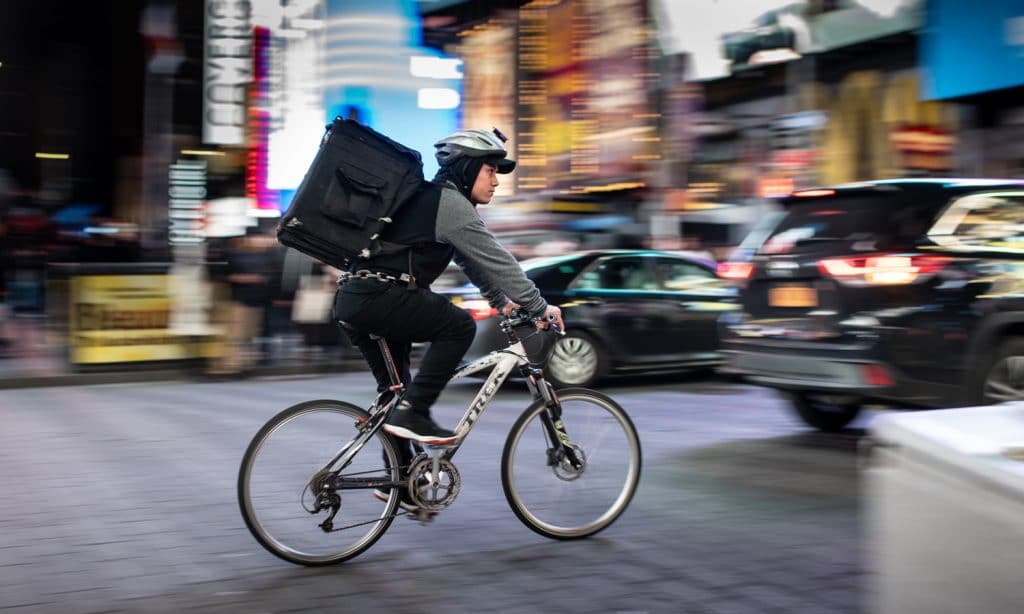By The Fresh Toast's Brendan Bures, provided exclusively to Benzinga Cannabis.
Marijuana deliveries and curbside pickup could become the new normal for marijuana businesses in response to coronavirus.
The ability to safely and reliably purchase cannabis has worried consumers and medical marijuana patients during the coronavirus outbreak. Now, local and state governments have joined in that concern, with numerous officials issuing emergency or temporary orders to expand marijuana delivery and curbside pickup.
In addition, multiple municipalities declared cannabis an “essential good” amidst shelter-in-place orders, meaning buying marijuana was among the approved reasons residents could leave their homes.
See Also: Marijuana Use And The Coronavirus Outbreak: Safety Guidelines From NORML
This past week saw a consumer demand for marijuana comparable only to that seen on 4/20, with many Americans stocking up on cannabis like it was toilet paper. That unfortunately caused long lines at dispensaries in places like Las Vegas and San Francisco, as well as New Jersey and Pennsylvania. Government officials, previously reluctant to make such changes, have responded by allowing more marijuana deliveries and curbside pick-up options to increase social distancing safety measures.
Michigan Governor Gretchen Whitmer signed an emergency executive order last week that allowed all licensed marijuana retailers to provide home delivery and curbside pickup. (Previously, a separate license was needed to conduct marijuana deliveries.) Nevada has issued a similar emergency order, as the state order all marijuana storefronts closed but allowing any dispensary to conduct deliveries. Illinois followed suit, although the state limited these rule changes only for medical marijuana patients, not recreational customers.

Photo by Brett Jordan via Unsplash
Marijuana store employees must adhere to safety protocol that will inhibit further spreading of the coronavirus, particularly for at-risk medical marijuana patients. Policies include drivers applying hand sanitizer between drop-offs and disinfecting common surfaces, employees conducting thermometer checks at the beginning of shifts, and no-touch identification verification process, according to Marijuana Business Daily.
Data shared by Jane Technologies with The Fresh Toast shows that new users ordering marijuana online has increased 142% since February. Stores offering both pickup and delivery options have seen delivery sales jump from 26% of sales to 33% of sales. Jane Technologies, an online marijuana products marketplace, also reports the average stores has increased their revenue between 52-130% since January.
See Also: Should I Use Marijuana During The Quarantine?
Questions linger how long these rule changes to marijuana delivery and pickup options will last. Illinois announced such adjustments will remain in effect only until March 30. But as the coronavirus outbreak and quarantine protocols appear like they will extend beyond that data, governments may have to adjust once again.
© 2025 Benzinga.com. Benzinga does not provide investment advice. All rights reserved.
Trade confidently with insights and alerts from analyst ratings, free reports and breaking news that affects the stocks you care about.
Cannabis is evolving – don’t get left behind!
Curious about what’s next for the industry and how to leverage California’s unique market?
Join top executives, policymakers, and investors at the Benzinga Cannabis Market Spotlight in Anaheim, CA, at the House of Blues on November 12. Dive deep into the latest strategies, investment trends, and brand insights that are shaping the future of cannabis!
Get your tickets now to secure your spot and avoid last-minute price hikes.